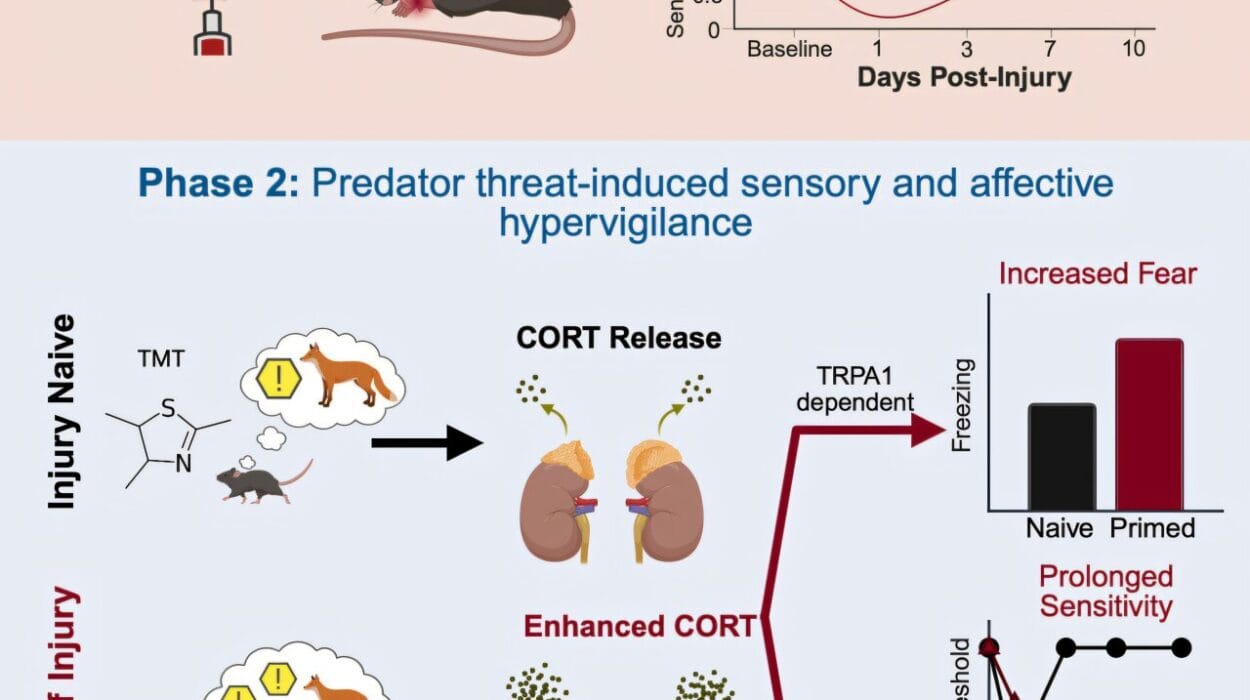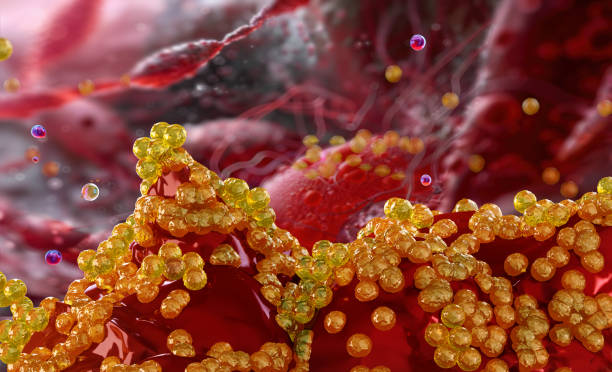Anxiety is like an unwelcome guest that overstays its welcome. It sneaks into your thoughts during the day, disrupts your sleep at night, and makes even simple tasks feel like climbing mountains. For many people, the first instinct is to reach for medication. While anti-anxiety drugs can be helpful and even necessary for some, they’re not the only way to manage anxiety. In fact, there’s a growing movement of individuals who are learning to cope, manage, and even thrive without ever popping a pill.
This isn’t about toughing it out or pretending everything is okay. It’s about understanding what anxiety really is and learning how to work with your brain and body instead of against them. Let’s explore how you can manage anxiety naturally, using strategies that empower you and help you feel in control.
Understanding Anxiety: More Than Just Worry
To beat anxiety, you have to understand it. Anxiety isn’t just worrying too much. It’s your brain’s way of warning you that something might go wrong — like an internal alarm system. But when that alarm goes off too frequently or too loudly, it becomes a problem.
Your amygdala — the part of your brain responsible for emotions — can become hypersensitive, interpreting small stressors as big threats. This triggers your fight-or-flight response, flooding your body with adrenaline and cortisol. Your heart races. Your stomach churns. Your palms sweat. Your mind spirals. Sound familiar?
Anxiety can manifest as panic attacks, constant worry, obsessive thinking, trouble sleeping, or physical symptoms like headaches and muscle tension. It can be triggered by stress, trauma, genetics, or even your diet. But the good news is, the brain is plastic — it can change. And anxiety is manageable, even without medication.
The Power of Breath: Resetting Your Nervous System
Let’s start with something incredibly simple but profoundly powerful — your breath.
When you’re anxious, your breathing becomes shallow and rapid, which fuels your body’s stress response. But when you slow your breathing down and make it deeper, you send a message to your brain: “Everything is okay.”
One of the most effective ways to calm anxiety is deep belly breathing. Here’s how it works: inhale through your nose for four seconds, hold your breath for seven seconds, then exhale slowly through your mouth for eight seconds. This is known as the 4-7-8 breathing technique, and it helps shift your nervous system from “fight or flight” to “rest and digest.”
Even practicing mindful breathing for five minutes a day can create lasting changes in your brain. It teaches you to ride the wave of anxiety instead of getting swept away by it.
Exercise: Moving Your Way Out of Anxiety
Your body was designed to move, not to sit hunched over a desk or scroll through a phone for hours. Exercise is one of the most powerful tools for managing anxiety. It’s not just about getting in shape — it’s about resetting your brain chemistry.
When you exercise, your brain releases endorphins — natural mood lifters. Physical activity also helps lower stress hormones like cortisol. But even more importantly, it changes your brain structure, making it more resilient to stress.
You don’t have to run marathons. A brisk walk, a dance session in your room, yoga, or even gardening can be enough. Aim for at least 30 minutes of movement most days. Consistency matters more than intensity.
Nutrition and Anxiety: Feeding the Calm
What you eat doesn’t just affect your waistline — it affects your mood and mental health. Your gut and your brain are deeply connected. In fact, your gut is often called your “second brain.” It produces about 90% of your serotonin, the feel-good neurotransmitter that helps regulate mood.
If you’re living on caffeine, sugar, and processed foods, you’re feeding your anxiety. These substances cause spikes and crashes in your blood sugar, which can make your anxiety worse.
Instead, focus on whole, nourishing foods. Leafy greens, nuts, seeds, lean protein, oily fish like salmon, berries, and whole grains are all rich in nutrients that support brain health. Probiotic-rich foods like yogurt, kefir, and fermented vegetables also help support your gut, and by extension, your mind.
And don’t forget to hydrate. Even mild dehydration can affect your mood and energy.
Mindfulness and Meditation: Training Your Brain
Mindfulness is the practice of being present — really present — in the here and now. Anxiety often drags us into the future, making us worry about things that haven’t happened yet. Mindfulness gently pulls us back to the present moment, where life is actually happening.
Meditation is one of the best ways to build mindfulness. And no, you don’t have to sit cross-legged in silence for hours. You can start with just five minutes a day. Close your eyes, focus on your breath, and when your mind wanders (because it will), gently bring it back.
Over time, meditation strengthens the prefrontal cortex — the part of your brain that helps with reasoning and self-control — and quiets the amygdala. It’s like giving your brain a gym workout.
Apps like Headspace, Calm, and Insight Timer offer guided meditations that make it easy to start. Even mindful walking, mindful eating, or simply noticing your surroundings can help reduce anxiety.
Sleep: The Underrated Healer
Sleep and anxiety have a complicated relationship. Anxiety can keep you from sleeping, and lack of sleep can make anxiety worse. It’s a vicious cycle, but one you can break.
Your brain needs sleep to process emotions and regulate mood. During deep sleep, it actually “cleans up” stress-related waste. If you’re not getting enough quality sleep, you’re more likely to feel overwhelmed and less capable of handling stress.
Create a calming nighttime routine. Turn off screens at least an hour before bed. Dim the lights. Try reading, journaling, or taking a warm bath. Stick to a consistent sleep schedule, even on weekends. And make your bedroom a sleep sanctuary — cool, dark, and quiet.
Nature: Anxiety’s Natural Antidote
There’s something magical about being in nature. Whether it’s a walk in the woods, sitting by a river, or even just lying on the grass and looking at the sky — nature soothes the anxious mind.
Studies show that spending time in natural environments reduces cortisol levels, lowers heart rate, and increases feelings of calm and well-being. Even 20 minutes a day in green spaces can make a difference.
If you can’t get to a forest, bring nature to you. Houseplants, nature sounds, or even looking at pictures of natural scenes can have a calming effect. Your nervous system was designed to feel safe in nature.
Journaling: Clearing Mental Clutter
Anxiety often lives in your thoughts, spinning around in endless loops. Journaling is like a pressure release valve for your brain. It gives your worries somewhere to go and helps you make sense of what you’re feeling.
You don’t have to be a writer. Just grab a notebook and let the words flow. Try writing down what’s making you anxious, what you’re grateful for, or what you need to let go of. You might be surprised at how much lighter you feel afterward.
Some people use structured techniques like cognitive-behavioral journaling — challenging anxious thoughts and replacing them with more balanced ones. Others just free-write. There’s no right or wrong way. Just write.
Social Connection: You’re Not Alone
Anxiety thrives in isolation. When you’re anxious, you might feel like nobody understands you, or you might want to hide from the world. But human connection is one of the most powerful antidotes to anxiety.
Talking to someone you trust — a friend, family member, therapist, or support group — can help you feel seen, heard, and supported. Sometimes, just saying your fears out loud takes away their power.
Even brief moments of connection — a smile from a stranger, a phone call with a loved one, or a chat with a barista — can have a soothing effect on your nervous system.
Therapy: Rewiring Your Mind
Managing anxiety without medication doesn’t mean doing it alone. Therapy is one of the most effective tools for managing anxiety. Cognitive-behavioral therapy (CBT) is especially powerful. It helps you identify negative thought patterns, challenge them, and replace them with healthier ones.
Other therapies like acceptance and commitment therapy (ACT), dialectical behavior therapy (DBT), and exposure therapy can also be effective.
Therapy gives you a space to explore your anxiety, learn coping strategies, and build resilience. And thanks to telehealth, therapy is more accessible than ever.
Creativity: Expressing What Words Can’t Say
Art, music, dance, writing — creative expression is a powerful way to process and release anxiety. When you’re creating, you shift from your thinking brain to your feeling brain. You enter a state of flow, where anxiety melts away and presence takes over.
You don’t have to be an artist. Doodle. Paint with your fingers. Write poetry. Play an instrument. Sing in the shower. Creativity heals in ways that logic can’t.
Faith and Spiritual Practice: Finding Peace Within
For many people, spiritual practice is a source of strength and comfort. Whether it’s prayer, meditation, attending religious services, or simply believing in something greater than yourself, spirituality can ground you and give your life meaning.
It provides a sense of hope and connection to something beyond your fears. It can help you accept what you can’t control and focus on what you can.
Spirituality doesn’t have to be religious. It can be as simple as spending time in silence, watching the sunset, or practicing gratitude. Anything that helps you connect with your deeper self can be a spiritual practice.
Building a Resilience Toolkit
Managing anxiety without medication is not about doing one magical thing. It’s about creating a toolkit — a collection of strategies that work for you. On some days, deep breathing might help. On others, a walk in the park or a talk with a friend might be more effective.
The key is to be consistent and kind to yourself. Progress may be slow, and setbacks will happen. That’s okay. Healing is not linear.
When you practice these techniques regularly, you begin to build resilience — the ability to bounce back from stress. And the more resilient you become, the less power anxiety has over you.
When to Seek Professional Help
It’s important to say this: if your anxiety is overwhelming, interfering with your daily life, or causing you to feel hopeless, reach out for help. There is no shame in needing support. Therapy, support groups, and even medication can be part of a natural healing journey.
Managing anxiety without medication is possible, but it’s not a badge of honor. It’s simply one path among many. The most important thing is that you find what works for you.
Final Thoughts: You’re Stronger Than You Think
Anxiety is a formidable foe, but you are not powerless. You have tools. You have strength. You have options. By learning to understand your anxiety, calming your nervous system, and nurturing your mind and body, you can reclaim your peace — naturally.
Managing anxiety without medication is not about ignoring your symptoms. It’s about tuning into your body, honoring your emotions, and taking small steps each day toward healing. You are not broken. You are human. And you are capable of more than you know.






